How swollen feet develop, what the causes are and what you can do about them
Swollen feet are not a rare health problem. Although they are uncomfortable, they are mostly harmless and can have different causes and occur under different conditions. Today we would like to list some of the most common reasons for this and give you some tips on what you can do about it.
Swollen feet – cause
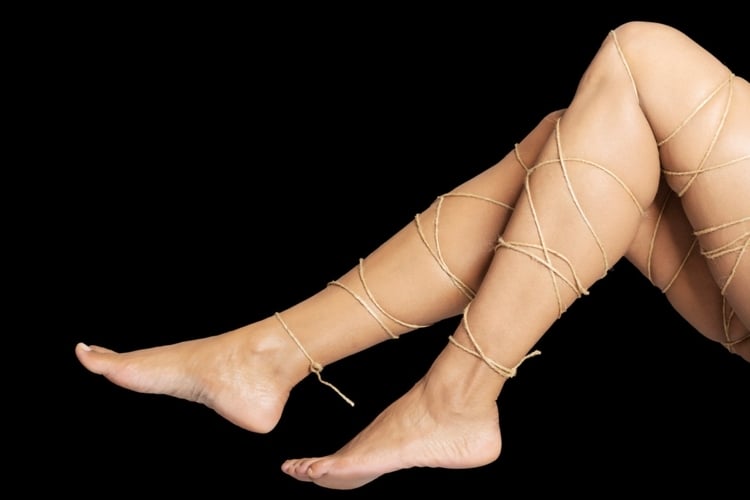
The causes of swollen feet can be of different characters. Above all, swollen feet occur in summer and during pregnancy. Other triggers for swollen hands and feet can also be the following:
- certain medications
- hormone fluctuations
- heart failure
- kidney disease
- Hypothyroidism
- too salty food
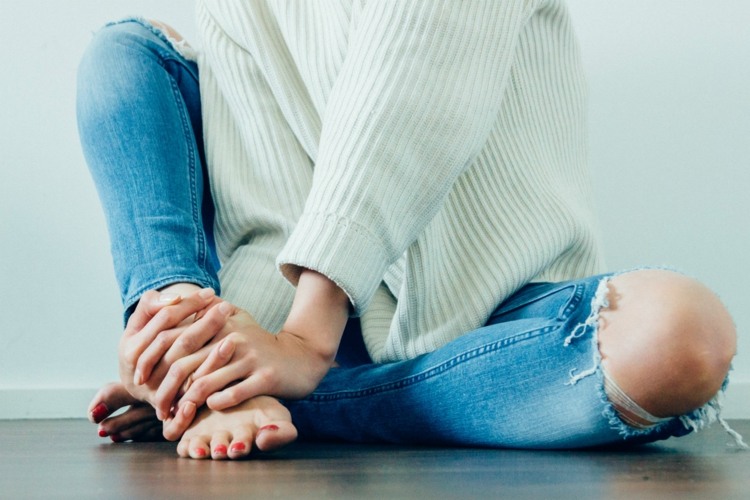
No matter which cause swollen hands and feet, the same thing always happens in the body – water collects in the feet, legs and / or hands and more precisely in the connective tissue as follows: The pressure in the blood and / or lymphatic vessels become strong, which is why they are forced to release water. The same pressure also prevents this leaked water from flowing out again. At the same time, the kidneys try to compensate for the lack of water in the vessels by retaining fluid.

Are swollen feet and hands dangerous?
Because of this, edema can occur in the long run. To prevent this, it is advisable to do something about the water in the legs or swollen feet. Depending on the cause, various remedies for swollen feet can help. In some cases, however, it is advisable to see a doctor who will determine the exact reason and prescribe suitable therapy.
Thick, swollen feet in the heat
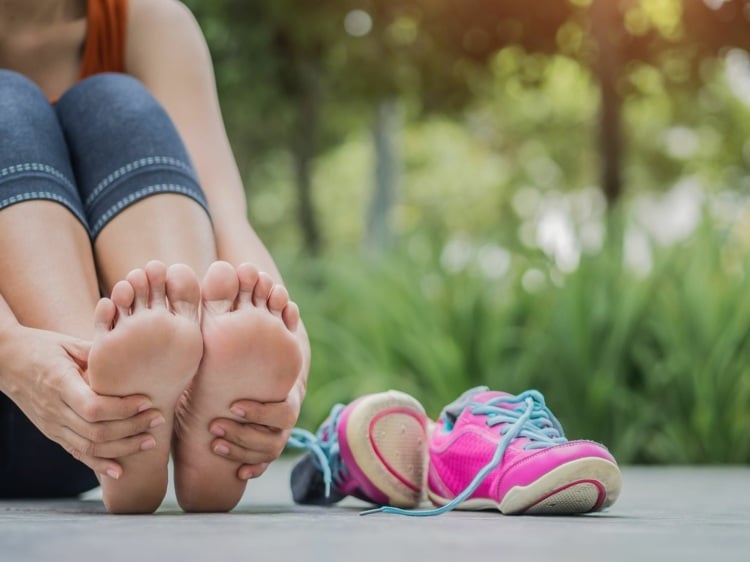
Swollen feet and ankles are not uncommon in summer heat. The reason for this is that the body cannot quite cope with the additional stress. Its job is to lose the excess heat. For this purpose, the veins dilate, which increases blood supply. However, if the veins fail to pump the increased blood back to the heart (venous insufficiency or weakness), water collects in the legs, feet and ankles.

Hot water in the legs – what to do?
Drink a lot of water, because then the liquid can flow back better. At the same time, you should also pay attention to the amount of salt you consume, because a lot of salt makes you thirsty and causes your body to keep more fluids. In this case, drinking as a result is not an advantage. Plenty of exercise is also important. The muscles in the calves support blood circulation and are therefore also called calf pumps.
During pregnancy
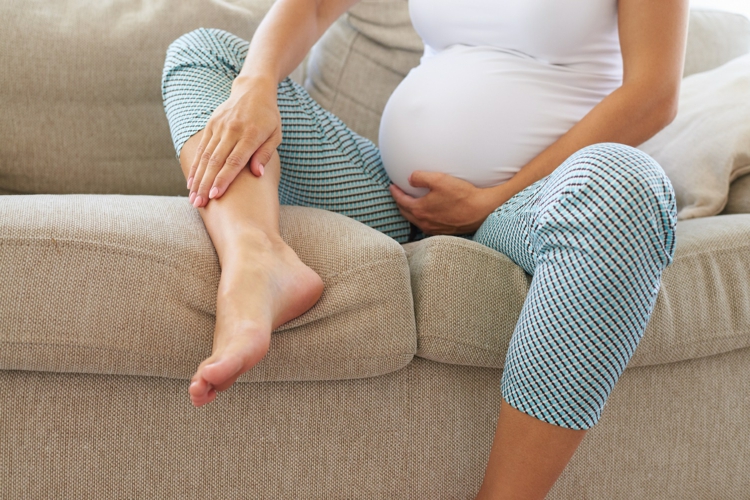
Hormone fluctuations are usually the cause when feet and ankles swell during pregnancy. The walls of the blood vessels become thinner, the purpose of which is that liquids can better get into the surrounding tissue. As already mentioned, increased pressure can also cause the legs and feet to swell. Because the blood volume increases during pregnancy, the same happens with pressure, so swollen feet can be a consequence.
Rarely, swollen feet appear in early pregnancy. If at all, they usually only appear from the second half of pregnancy. In addition, pregnancy-related swollen feet are usually the worst in the evening.
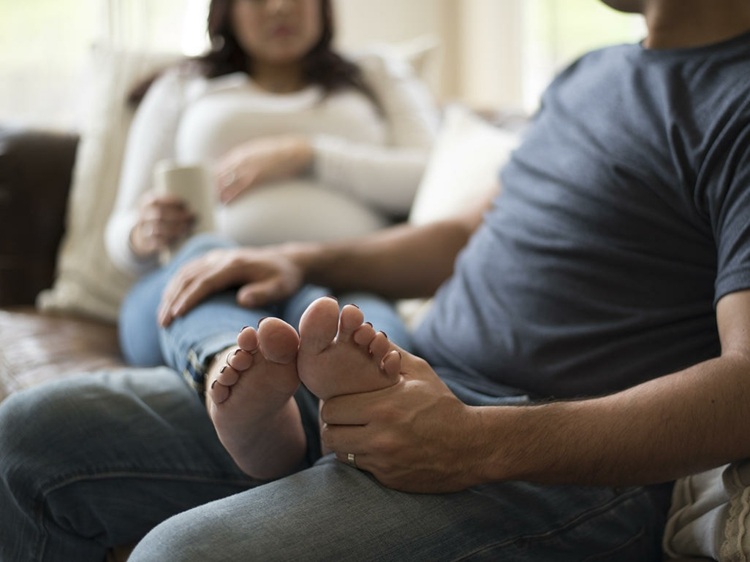
Are Swollen Feet Dangerous During Pregnancy?
It is usually a normal side effect of changes in the body during pregnancy. However, if despite various measures the swelling does not go away overnight or even occurs on other parts of the body, it can also be a more serious problem and a gynecologist must be consulted.
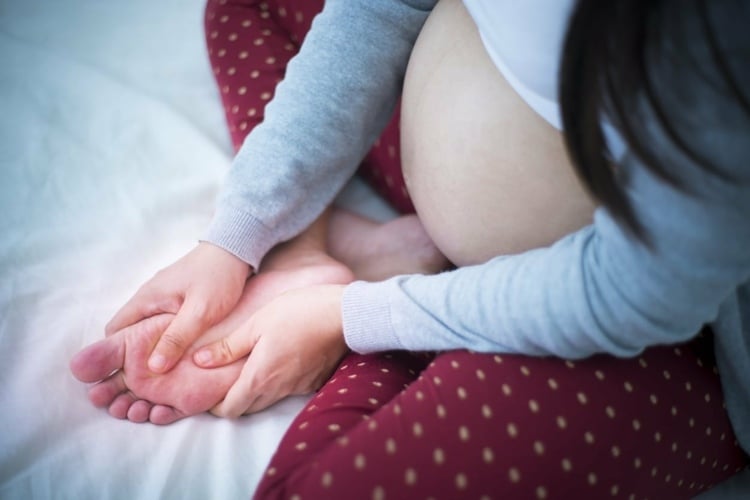
Swollen feet during pregnancy – what helps?
There are several home remedies for swollen feet that you can try preventively, but also if you already have them. On the one hand, you can prevent swelling by wearing compression stockings, but also a regular massage with a body brush that stimulates the circulation, as well as alternating showers, drinking plenty of water and sufficient exercise are good preventive measures. You should also put your legs up as often as possible. At night, for example, this works very well with a pillow.
Consult your doctor if necessary. This may prescribe a helpful ointment for swollen feet or other medications and therapies. Light exercises for the legs also prove to be very helpful. With these means you can reduce the problem or even prevent it. Usually swollen feet should not be a problem after birth.
Swollen feet after sitting for a long time

Those who do not move for a long time can promote swelling of the legs. The reason for this is that the calf muscles are at rest and therefore cannot help with the blood circulation. The result is that more fluid accumulates in the lower body, i.e. in the legs, ankles and feet, and swell them. This is why swollen feet are common after a flight that lasts longer.

What can you do about swollen feet caused by lack of exercise?
It goes without saying that movement is necessary here. Whether in the office, during a long drive or on a long-term flight – try to move as often as possible to get the blood circulation going. There are also special travel socks that you can wear if you can't. You should also avoid crossing your legs as this will compress the veins, which will disrupt blood circulation.
After an operation

Swollen feet after surgery are possible if you have actually had a foot operation. The body then produces inflammatory substances, which cause liquids to leak from the veins into the tissue. Since you can only move to a limited extent in this situation, the calf muscles cannot help the blood circulation. But even after other types of operations, movement is not always easy.
What to do about swollen feet after surgery?
Instead, you can just put your leg up, because then gravity ensures that the fluids can flow back and towards the heart. Put your leg up several times a day for about 20 to 30 minutes. It should be above heart level.
Diseases as the cause
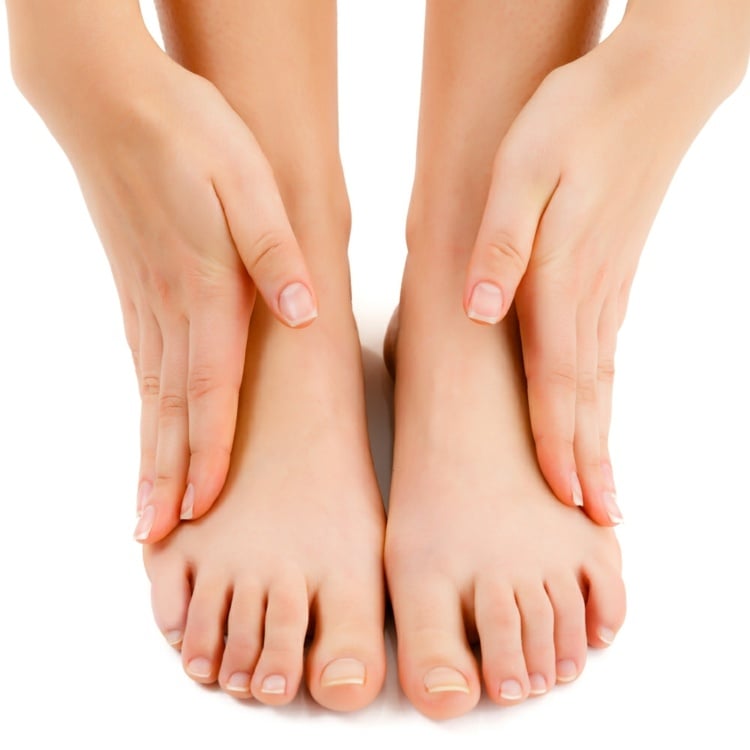
Sometimes illnesses are the cause of swollen legs and feet. For example, a soft, swollen back of the foot can be a sign of heart failure. Chronic kidney weakness, liver cirrhosis or a lack of protein (e.g. due to eating disorders) can also cause swelling. With hypothyroidism, areas around the back of the foot and shin usually swell. Other possible causes are Graves' disease (hyperthyroidism), as well as hormonal and metabolic diseases.
Swollen ankles and feet on one side
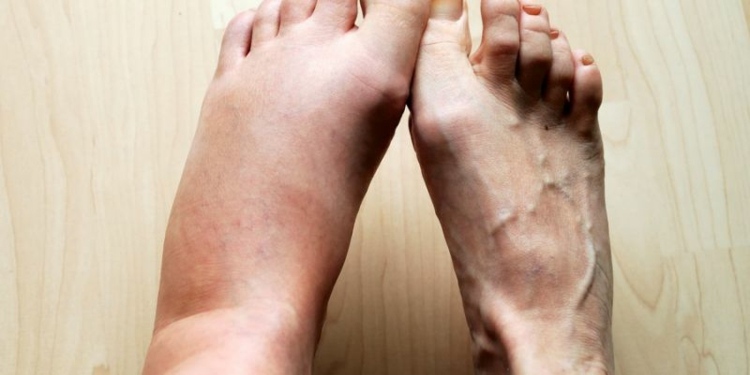
If only one foot is swollen, you should pay more attention to it, because then it can also be a more serious problem. If you can rule out an accident as the cause of swollen ankles (e.g. sprain after twisting), there could also be an allergic reaction as a result of an insect bite or an inflammation of the eyes. Varicose veins, gout or thrombosis can also cause swollen feet on one side, which is why a doctor should be consulted.
Effective home and other means
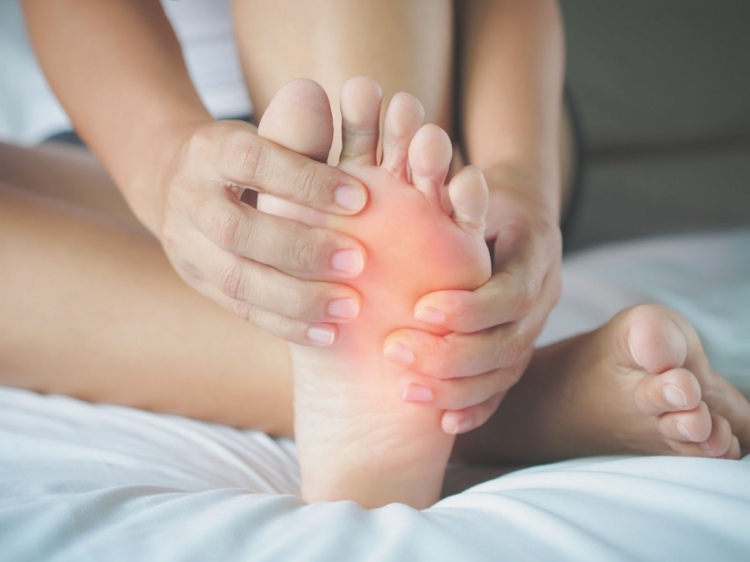
In summary, we would like to list you again and other home remedies that you can use against swollen, fat feet:
- Foot baths with cold water: The feet are briefly immersed in cold water several times and pulled out again. Through this alternation of warm and cold, the arteries expand and the flash circulation is stimulated. According to studies, even deposits in the vessels can be reversed in this way.
- Sufficient movement: It doesn't have to be intensive training in the gym. Casual jogging, cycling or fast walking promote blood circulation and prevent water in the feet.
- Low salt diet is beneficial for a better water exchange because the body does not hold back any water.
- Cold leg wraps are effective, but not suitable for all vascular patients and only allowed after consultation with the doctor. Ask him about curd wrap. The cold water can also be combined with fruit vinegar.
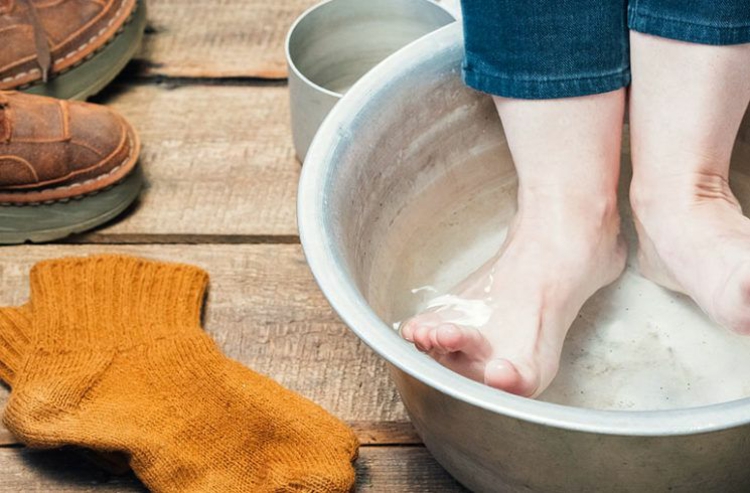
- Put your legs up: How gravity helps drain the accumulated water.
- Swollen feet medication: Your doctor may prescribe diuretic agents for you. These support the kidneys with drainage.
- leg exercise: Lie on your back, stretch your legs in the air and circle your feet.
- lymphatic drainage: This is a massage that strokes the lymphatic system and stimulates blood flow to the heart.
- By compression stockings This creates pressure in the leg and foot, which prevents water from accumulating in these areas.
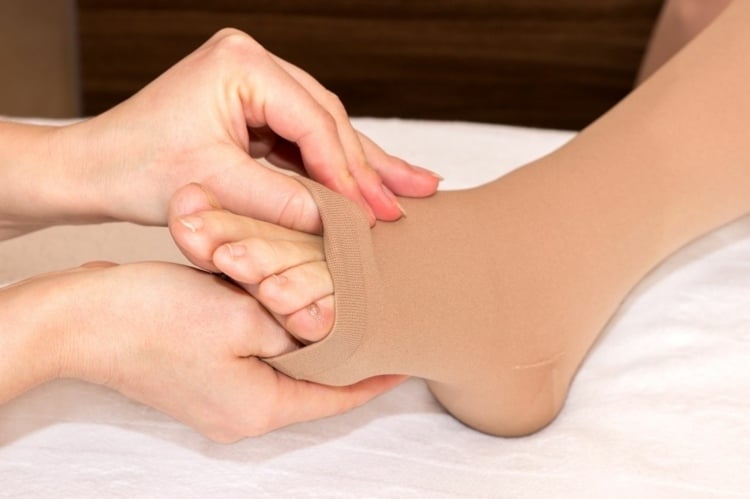
- Herbal remedies are just as effective and more precisely the lily of the valley, the oleander and the hawthorn. But keep in mind that this is toxic Plants deals, which is why the independent collection, drying and application are prohibited. Instead, consult your doctor or pharmacist. There are safe, ready-made medicines that you can purchase.
Foot swelling in children
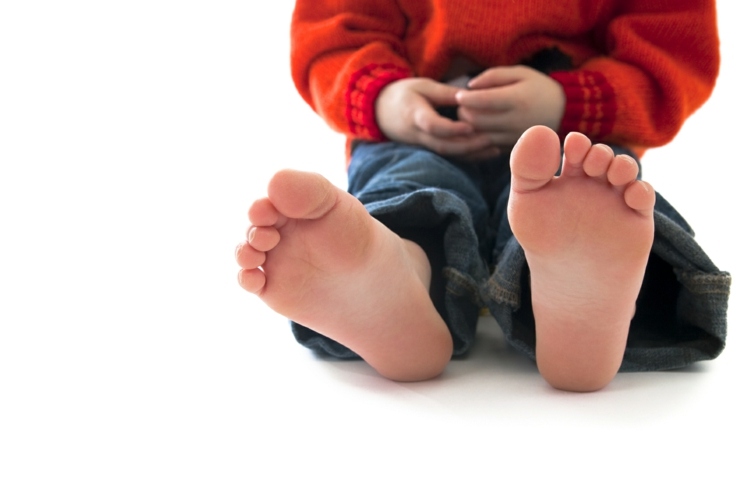
Swollen feet in children, like adults, can have different causes. Because children are particularly active, it can be an injury on the one hand. This could be a sign, especially if the swelling is in the area of the ankle. If it is an injury, it should also be swollen, aching feet. In this case, cool the area and put your leg up.
Swollen feet without pain, however, could also be the result of an insect bite with an allergic reaction. In this case, the puncture site is usually also visible and red. The swollen foot can also be warmer than the other.
If you are unsure of the cause, do not hesitate to see a doctor who can rule out more serious problems or prescribe appropriate therapy and medication.
When to the doctor?
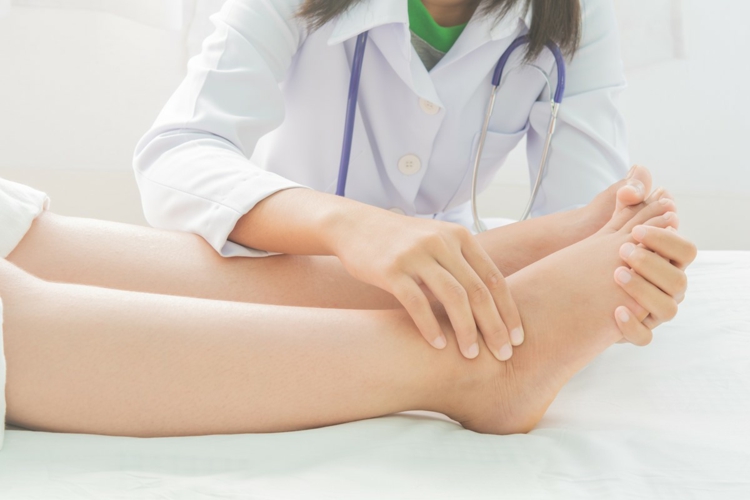
Even if swollen legs and feet are mostly harmless and can be alleviated with the means mentioned, they can also be signs of kidney problems or heart disease. See a doctor under the following conditions:
- The swelling lasts for more than 24 hours.
- They often have swollen feet.
- The swelling appears suddenly and is accompanied by symptoms such as burning and pain or the feet become hot.
- You also have chest pain, shortness of breath, rapid heartbeat, poor circulation or fever.
- The skin changes color or changes.
- You have varicose veins.
- Only one leg is swollen.
The post How swollen feet develop, what are the causes and what you can do about them appeared first on Deavita.com | Living ideas, design, hairstyles, make-up, lifestyle, health and beauty tips.





















